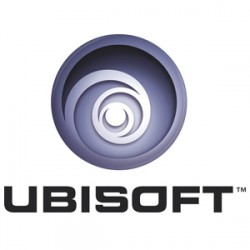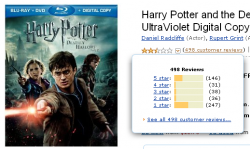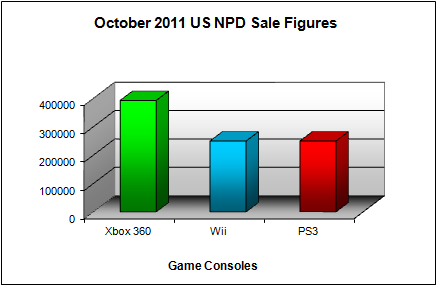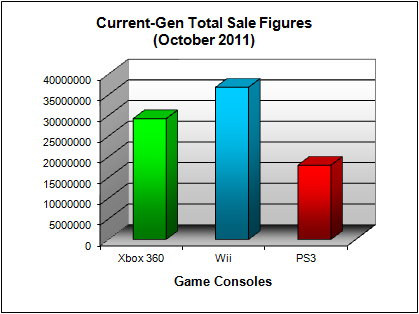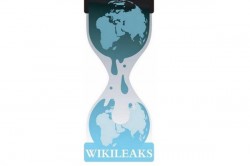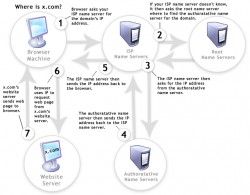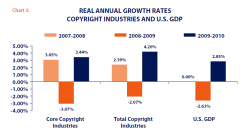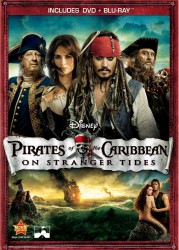
Steam's Autumn Sale is on, and if you're like me, then credit card (or PayPal account) will take a pounding as a result - and to make things worse, Steam's holiday sale is just around the corner!
Hope you’ve had a nice week, perhaps even a night Black Friday deals week. If you’re like me, then your wallet has taken a pounding, despite the Blu-ray and game deals being not all that great so far. The Amazon US/UK Black Friday Blu-ray sales, especially the spotlight/lightning sale items, have been generally disappoint though, not that it has stopped me buying a dozen or two Blu-ray’s, mostly from the BF general sales categories. Steam’s Autumn Sale is a bit more interesting, still has one more day to run, but the titles I really want haven’t really come up yet (snatched up Portal 2 and Orcs Must Die so far). Speaking of Steam and bargains, would you like some free Steam games? If so, and if you have luck with competitions and stuff, then you should try Steam Gifts, which is now open to sign-ups (no more invitations). The way it works is that you periodically get “points” which you can use to enter competitions for games gifted by other users, and if you’re lucky, then you can get lots of free games (I’m not so lucky, 0 win out of 33 entries so far). Most competitions have a couple of hundred to a few thousand entries, so it’s not easy, but it’s probably easier than most other competitions, plus it’s all free. Just realised that it’s actually counter-productive for me to tell you about Steam Gifts, since more people will make it harder for me to win – so, if you can, forget what I just wrote, and whatever you do, *don’t* sign up. Thanks.

Continuing on from last week’s anti-SOPA stories, remember when Nancy Pelosi tweeted in support of opposition to SOPA. It seems an important endorsement of a growing movement, and as a progressive politician, it seems like the right thing to support.
Unfortunately though, it seems Pelosi is yet another politician in the pockets of the movie industry, as the “backflip”, or what Washington politicians call a “clarification” came soon after the tweet, declaring Pelosi’s continued support for the film industry’s fight against web piracy, blah blah blah. And people wonder why Congress only has a 9% approval rating, or why if it suits some lobbying agenda, that even tomato paste on pizzas can be declared a vegetable, made more ridiculous by the fact that tomatoes are a fruit.
But one politician sticking to true convictions is Senator Ron Wyden of Oregon. He as the only senator to stand up PROTECT IP when it pass through the Senate’s own judiciary committee, and he did it by placing a hold on the bill, delaying the vote until 60 other senators get together to vote the hold down. PROTECT IP, if you don’t know, is SOPA’s uglier older brother, and both try to do the same thing – make the government responsible for the copyright enforcement of the movie and music industry, at tax payer expense, by destroying due process and possibly the entire Internet.
Unfortunately, Senator Wyden concedes that the 60 votes needed may not be far away, and he is now going to use a more common tactic to delay the voting – a filibuster! Not only that, he’s asking those opposed to PROTECT IP (and SOPA) to submit their names to stopcensorship.org, and Senator Wyden will read out people’s names during the filibuster. It’s a nice touch, and I hope there are enough names submitted for Senator Wyden to have enough to read during his filibuster. If only all politicians were like Senator Wyden, and actually stood up for the public’s interest, as opposed to that of corporations, the US and the world would not be in the state it is.
For those that think there’s too much hyperbole when it comes to the threats attached to SOPA and PROTECT IP, that these aren’t really that dangerous and “normal” people won’t get affected by it, then if you want examples what governments that are too copyright-friendly can get up to, then here’s a story from Denmark. Like what SOPA and PROTECT IP will allow the US government to do, Denmark banned The Pirate Bay, and now, a blogger who simply posted instructions on bypassing the block has had his home searched, and could face up to 5 years in prison. You see, in order to allow for the enforcement of website bans, the government has also had to ban tools and techniques that bypass the ban, something that’s in SOPA as well. But many of tools that bypass website blocks are industry standard tools, and the techniques are fairly straight forward and are used for other things as well (such as trying to stay anonymous online), and just as the EFF warned the other week, something that’s not thought out like SOPA could make a whole host of perfectly legal, and extremely useful tools and techniques for engineers and Internet businesses, illegal.
And so 19-year old law student Halfdan Timm found himself facing arrest by police at his school if he did not cooperate with a search of his flat, and police ransacked through everything, including his roommate’s room, and even through his dirty laundry. All of this was based on a “hunch” by the film industry’s anti-piracy agency in the country, and this could very well happen to more people in the US if SOPA or PROTECT IP passes.
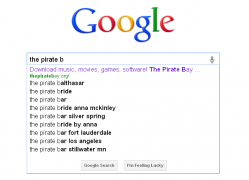
Ironically, while "the pirate bay" related terms are removed from the suggestion list, the actual domain name is still the top linked recommendation due to its number one position on the search ranks
And while Google was doing its best to put some at least some kind of resistance to SOPA at the Congressional hearings, they’re again walking the tight rope between giving the film/music industry what it wants, and ensuring their own interests (and that of web searchers) are not compromised. So this week, Google added more “piracy related” keywords to its auto-suggest/complete blacklist, now including the term “the pirate bay”, “isohunt”, “fileserve” and basically all the major file-sharing websites. When a keyword is black listed, it will no longer come up as a suggested or auto-completed keyword in Google search, but the search result is not affected. But as I said when Google first introduced this “do no evil” feature back at the start of the year, it won’t really appease the rights holders, because what they’ve wanted from the start was for Google to actually filter the results (and SOPA/PROTECT IP will give them that). Google’s policy of appeasement was never going to work, and I think they should just stick to their guns and don’t accept blame for what people are searching for.
With SOPA/PROTECT IP, and the government intervening in copyright cases, the future of mass copyright lawsuits will become even more uncertain. Most of damage to their cause is being done by Righthaven these days, with their scattergun approach and their ability to pick the absolute worse people to sue (plus the whole suing people for newspaper articles repostings, is just not as “sexy” as suing big bad pirates for downloading illegal movies). Probably their worst target so far has been Democratic Underground, a progressive political forum where they simply love to be in this kind of fight, and choosing people *not* willing to put up a fight is exactly what mass copyright, pre-trial settlement fee extracting lawsuits are all about. Anyway, this week, Stephens Media, the backers of Righthaven and also their only major client left, conceded that Democratic Underground had fair use rights to use a five-sentence reposting of a Las- Vegas Review-Journal article. The admittance to fair use rights is actually kind of a biggie, since the other cases Righthaven lost have been mostly on procedural issues (the question whether Righthaven even had the right to sue on behalf of Stephens Media). A five-sentence posting, to me, is definitely fair use, as if it isn’t then even just posting a link with a headline for an article may become the target of a lawsuit in the future, and that’s just counter-productive for all involved. If anything, a 5-sentence excerpt is really free advertising for the newspaper, as people, if interested in the story, will click on the accompanying link to read more, while those not too interested will get the gist of the article without wasting the bandwidth of the newspaper website – a win win, really. So I have no idea why Righthaven even sued in the first place, it was a loser from the get go.
And with Righthaven dying a slow death, the Australian version of mass copyright lawsuits seems to have hit a snag before it has even started, with the VP of Movie Rights Group leaving the company, and the website for the firm going down. It’s definitely been quiet the last couple of weeks, ever since the first stories surfaced of MRG’s attempt to sue thousands. We’ve only really heard from ISPs about what they intend to do, but nothing much from MRG. And since Australian law is different from US law, perhaps MRG has hit some hurdles in their attempt to get customer data, or to approach them with settlement offers based on the threat of statutory and punitive damages. Nobody will shed any tears if MRG does disappear into the wilderness.
![]() Technically still a copyright story, but I wanted to give a bit more variety to this WNR, so into the gaming section it goes.
Technically still a copyright story, but I wanted to give a bit more variety to this WNR, so into the gaming section it goes.
Ubisoft may withdraw from the PC market, says senior company employees, due to piracy. Or not. The confusion comes from Ubisoft creative director Stanislas Mettra, and his rather angry rant at “bitching” PC gamers, although he later retracted his statements saying that as English wasn’t his first language, he probably meant something else when using the term “bitching”. But I’m sure he wasn’t trying to say that all PC gamers were female dogs, although that would explain why nobody is paying for anything (dogs don’t have pockets to put their wallets in, you see). But Ubisoft producer Sébastien Arnoult didn’t retract his statement that “95% of our consumers” are pirates (and consume as in play the game, as opposed “consumer” in the normal sense of the word), and saying that is the reason why Ghost Recon: Future Soldier will not be getting a PC version.
Ubisoft’s own “bitching” about piracy is really getting stupid now, and it looks like they’re more than willing to shoot themselves in the foot once more by ditching the PC market. But to be fair, their stupid DRM probably already drove away their last remaining loyal PC gamers, so they really have nothing much left to lose.
But it’s ironic that two game retailers, Steam and Good Old Gaming, both came out to attack Ubisoft’s stance, and both are companies that have been very successful selling PC games even when everyone else was saying that the market is completely dead due to piracy. Steam’s Gabe Newell says that piracy is more of a service issue than a pricing issue, and that’s definitely true. He again points to markets like Russia which had been abandoned by companies like Ubisoft due to high piracy rates, but by abandoning the market and not producing a regional version of the game (with the right language), it left gamers with only a single choice – piracy. By providing faster regionalisation and better services, Russian is now Steam’s second largest market in Europe. Trevor Longino from Good Old Gaming agrees, because he sees piracy as an easier way to get and play games than the current loopholes that publishers want paying customers to jump through, via creating multiple accounts, and offline and online validation.
But I think pricing is definitely also an issue. Steam themselves have pointed to higher total revenue when games are priced significantly lower. With digital distribution, there’s no actual cost increase associated with selling more copies, the only extra cost comes from tech support and perhaps support for online features. Publishers don’t pay much attention to tech support anyway, so it’s not as if more gamers would strain their (lack of) service too much. And online features can have their own marketplaces, where gamers can buy additional items, and so more gamers equals more revenue normally. And this is why free-to-play seems to be a new business model, and even Ubisoft is getting in on the act with Ghost Recon Online.
But I think there’s a good balance between free-to-play, and “pre-paid” games that also have purchasable optional online content, and done in a better way than DLCs that add nothing to the game experience, which sadly is the case far too often these days.
My finger hurts, so it tells me it’s probably time to stop typing. See you next week.


